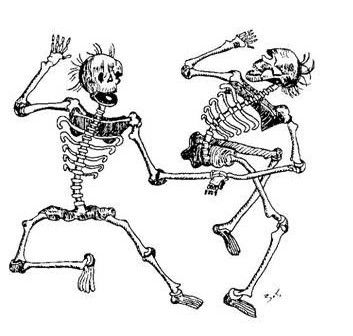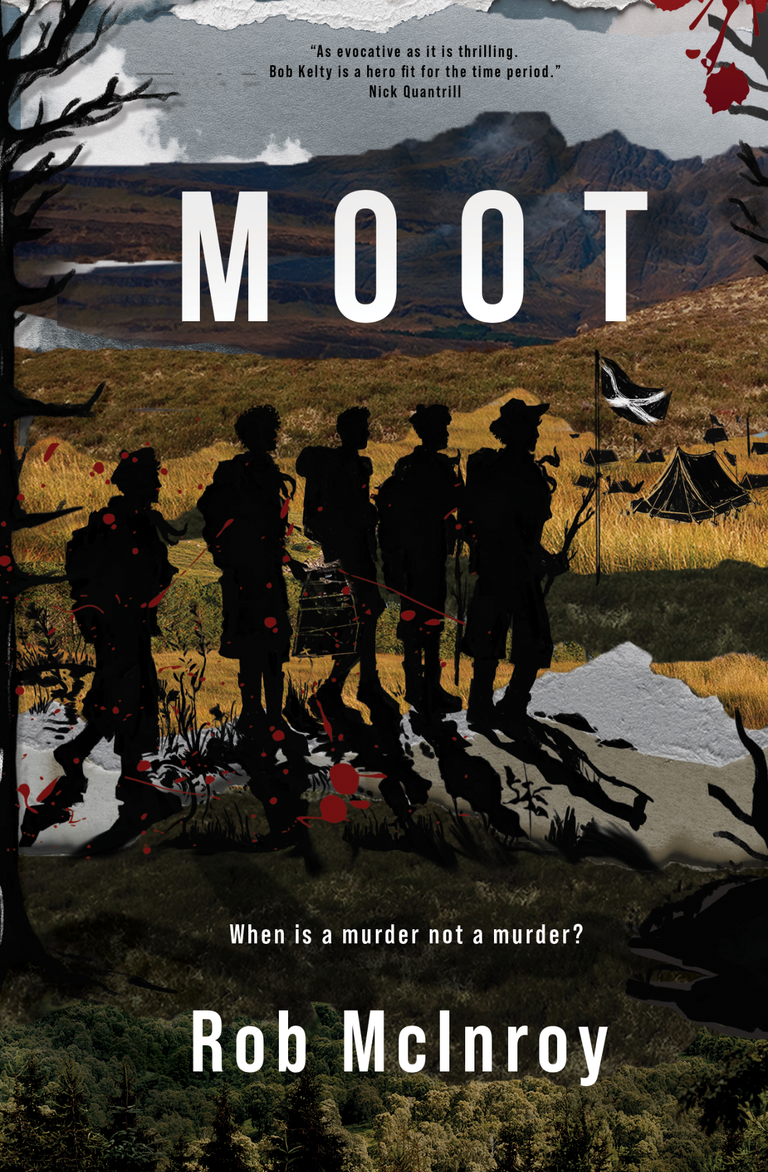
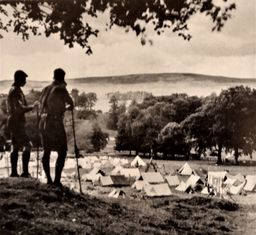
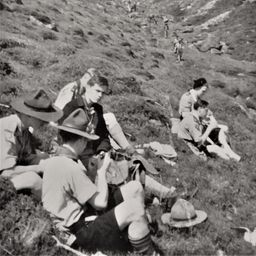
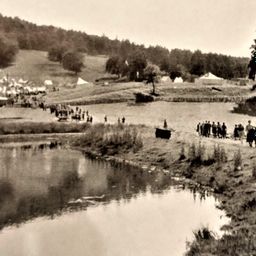
Moot
July 1939, and 3,500 young men from around the world arrive at Monzie Castle, outside Crieff, for the third International Rover Scout Moot.
Among them is a murderer.
Bob Kelty finds the badly-burned body of a man in a tent outside the Moot Campsite. But the authorities seem strangely reluctant to investigate, and once more it is down to Bob Kelty to uncover the truth.
The third novel in the Bob Kelty series set in 1930s Perthshire
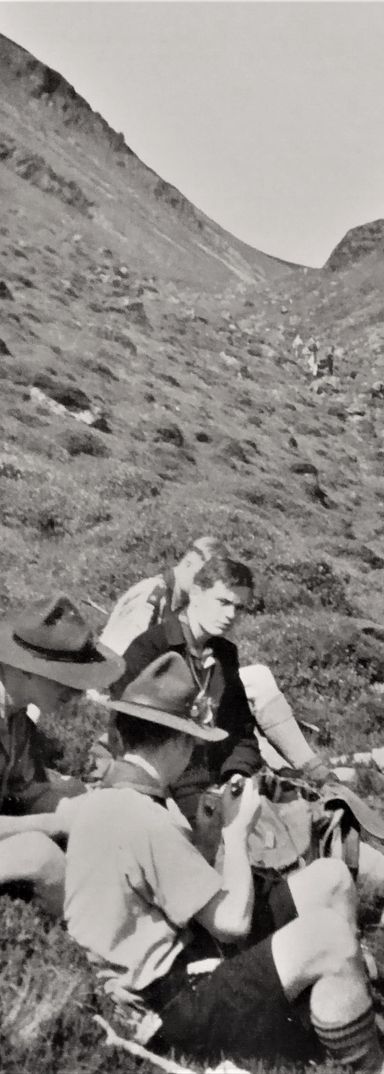
July 1939
13th July
Miško Čurović walked beside the blond-headed man in silence. He looked behind, at the campsite and the neat rows of white tents dotting the hillside. The men crested a gentle slope and the path they were following, bounded either side by wet sedge, led into light woodland. A field lay to their right, beyond a teetering stone wall. Miško’s breathing was shallow. His heart was pounding.
‘I’m sure you did not expect to see me again,’ the blond-haired man said. His accent was European, his tone friendly.
‘No.’
‘It make things difficult for you, I imagine?’
‘Not really.’
There were starlings in the canopy, flitting energetically, the rush of their wingbeats overlaid on the rustling of the trees, sudden and thrilling. Grass shivered. A recent shower brought smells of the soil to the surface. The air was heavy. There would be rain.
Miško Čurović fell behind and picked a heavy stone from the side of the path. It fitted neatly into his palm. He walked on, listening to the sounds of existence, watching the blond-haired man’s final movements.
He swung his right arm wide and shallow and caught the man on the side of the head with the stone. The crack of crushed bone alarmed the birds aloft and they swooped away from a predator who cared nothing for them. Miško Čurović cared nothing for anybody or anything, other than Miško Čurović and his instructions.
The blond-haired man fell to the ground and did not move.
Miško left him where he lay. He placed the stone, blood side down, by the edge of the path and turned and walked back towards the campsite. On the way, he lit a cigarette.
As he turned into a bend, approaching him was a man with a horse pulling a creaking and aged wooden cart. Miško greeted the man with a wave.
*
After waiting for a few minutes to be sure the path was clear, István Kedály emerged from behind a monkey puzzle tree and stooped to inspect the dead man. He shook his head in irritation and looked around the lightly wooded slope, deliberating on what to do next. When he saw Miško Čurović returning he retreated into cover once more.
More about Moot
Moot is a novel set during the real Third Rover Scout Moot which was held in the grounds of Monzie Castle in July 1939, just weeks before the outbreak of World War Two. The following are some extracts from the novel and some of the images which inspired the story.
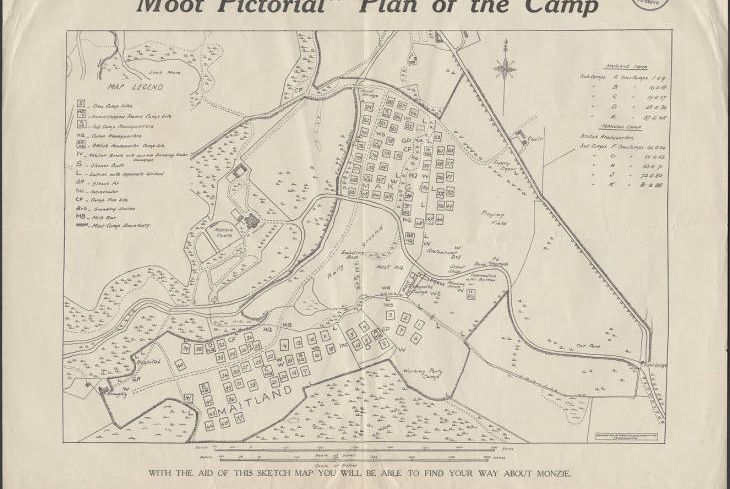
The Moot Camp
For three days, rain had fallen on the volunteers erecting tents in Maitland and Makgill camps, on high ground beneath the tree-line of the northern slopes of the Knock hill. Both Maitland and Makgill camps were capable of housing two thousand men. Each camp was subdivided into smaller groupings of five hundred and then into units of fifty.
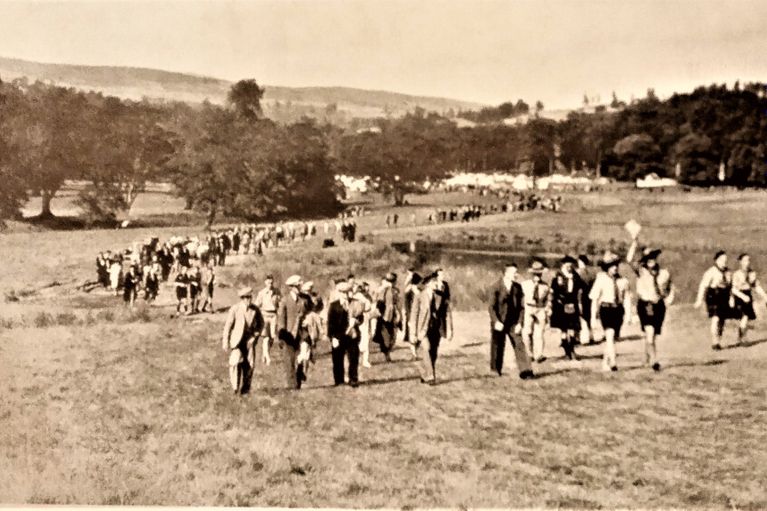
Visitors
Despite the weather, a steady flow of buses was ferrying to Monzie the crowds that had descended on Crieff Railway Station, while organised coach trips and magical mystery tours were arriving from all over Scotland. By nightfall, more than ten thousand visitors would have paid a shilling for entrance.
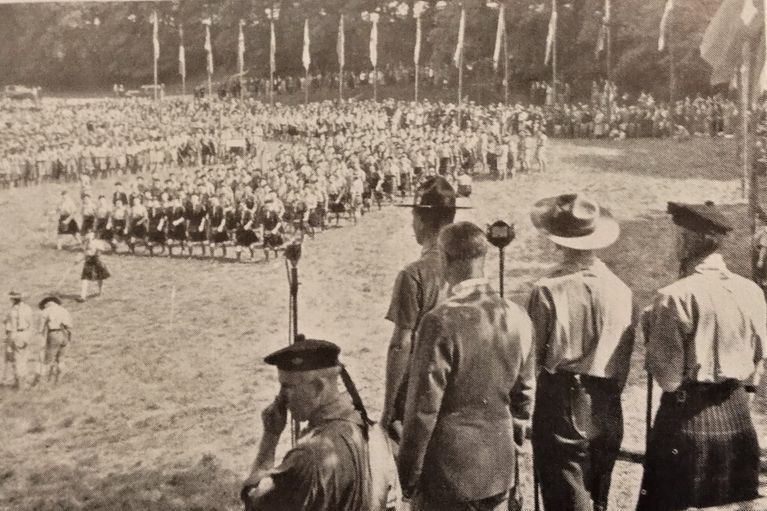
Opening Ceremony
The dignitaries took their places. Lord Somers, the Deputy Chief Scout and presiding over events in the absence through illness of Lord Baden-Powell, took the centremost position. Around him, John Colville MP, Secretary of State for Scotland, Lord Rowallan, Prince Gustav Adolf of Sweden and Colonel AG Johnston DSO, the Moot organiser, took their places. All but John Colville and Prince Gustav wore kilts.
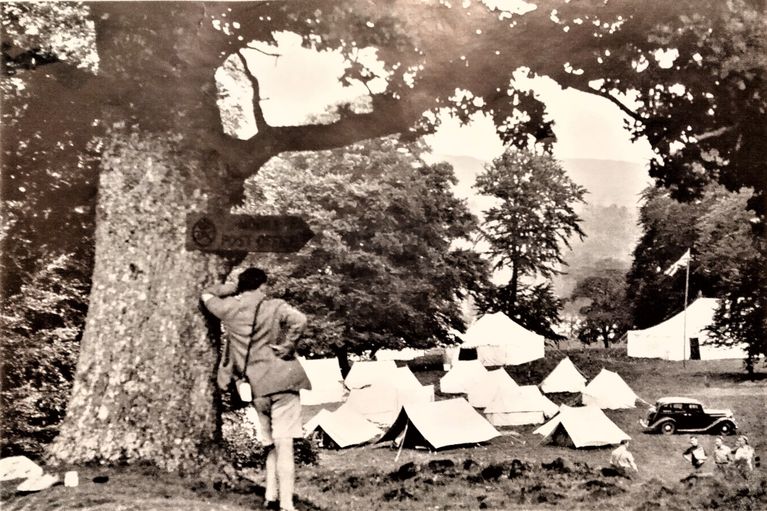
Headquarters
On lower ground, surrounding a natural amphitheatre in the middle of the Monzie estate, final preparations were being made at the headquarters of the third international Rover Scout Moot.
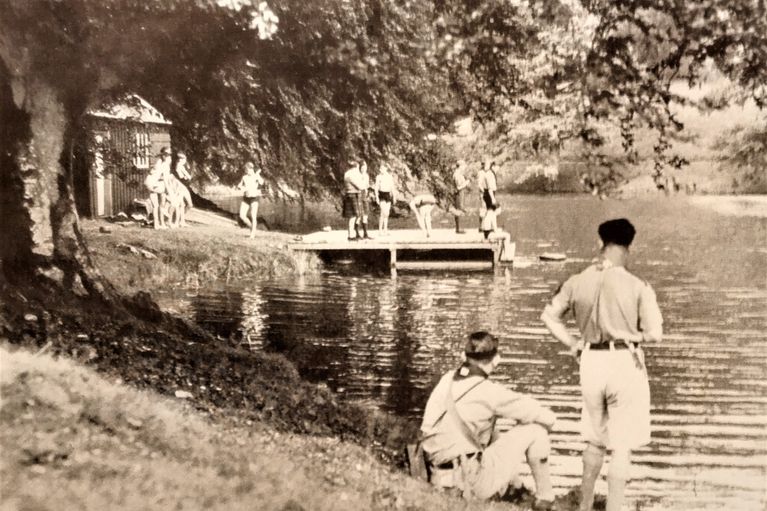
Loch More
Loch More shimmered in black and silver beneath the mid-morning sun, ripples on the water from a light wind, a single, perfect circle radiating from the point where a trout had broken the surface. On the far bank, a handful of Rhodesian Rovers were lounging on the grass, smoking cigarettes and swapping stories. A turbaned Indian was perched on the jetty, preparing to slide into the water. He appeared apprehensive
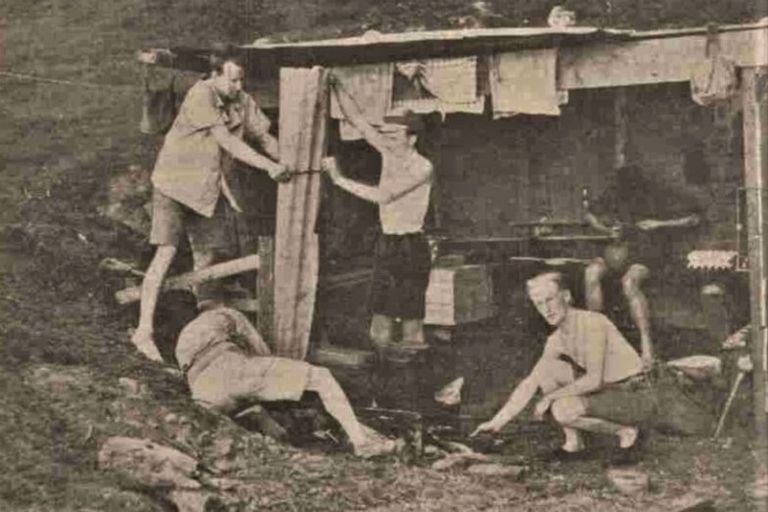
Meikle's Nook
Midway up the hillside, they arrived at a curious construction, a wooden canopy built over a natural dip in the ground, held in place by two struts at the front and festooned with towels and shirts. Scratched onto a plank of wood nailed to a pole secured in the ground were the words “Meikle’s Nook.” A man, lean and lanky, wearing only boots and khaki shorts, appeared to be making running repairs. He was whistling tunelessly.
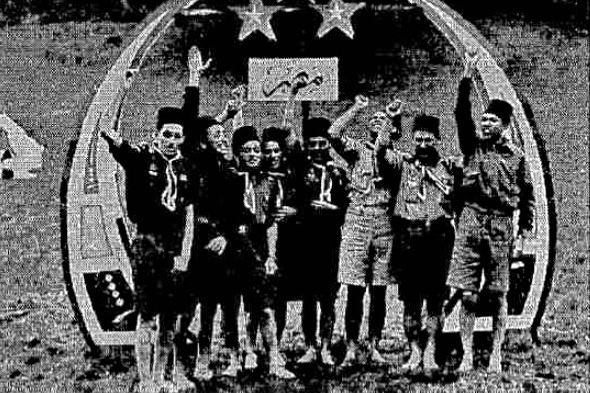
Turkish encampment
Marking its boundary was a representation of the symbols from the Egyptian flag, the crescent turned on its side and fashioned into stylised, curling pillars expertly carved from wood. Hanging from them were the three stars that made up the rest of the flag. Half a dozen men in fezes and overcoats were milling around their fire, eating from tin pans or holding pots over the flames. Among them, Bob recognised Mustapha Mansour, goalkeeper for Queen’s Park football club.
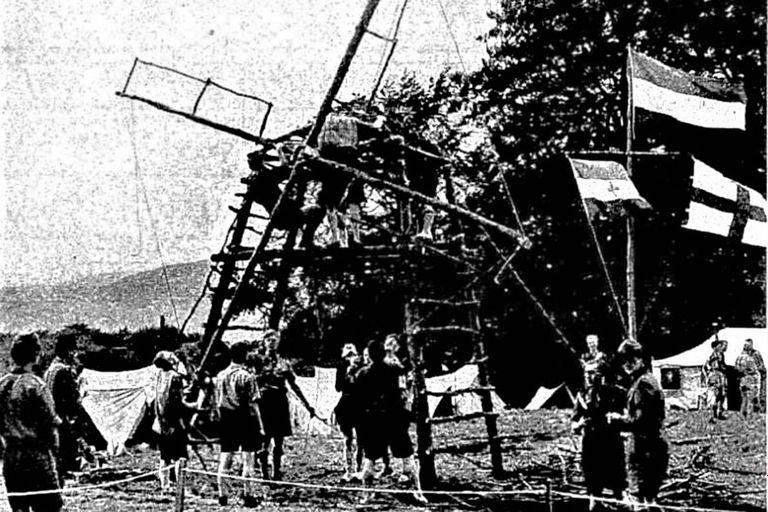
Dutch encampment
A peewit swung through the sky, green and blue, almost swifter than the human eye. Long grass beneath the trees swayed in the wind. There was a sigh in the treetops, a gentle wind blowing through the day. In the Netherlands area, three Rovers were putting the finishing touches to a half life-size wooden windmill.
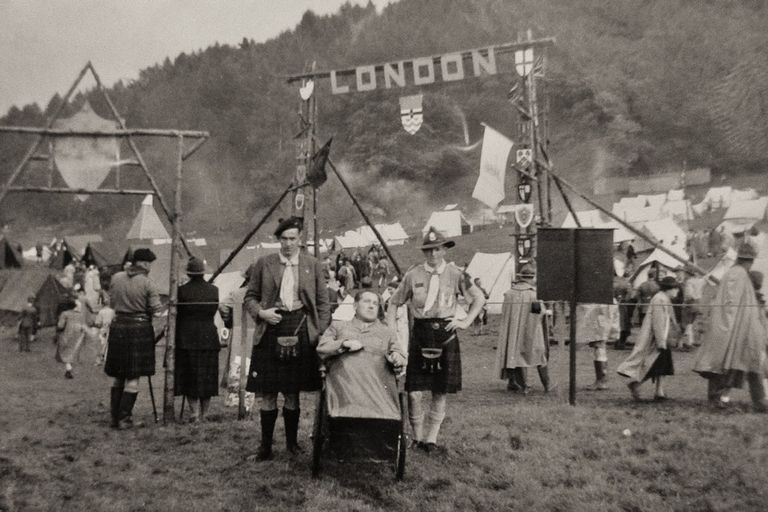
Mickey and the London Lads
By the time they reached “London” the band of three was in full flow. Abdalla stopped beneath the London sign, flourishing his hand above his head, and turned and began to conduct the pipes and drum, waving his arms in approximate time with the music.
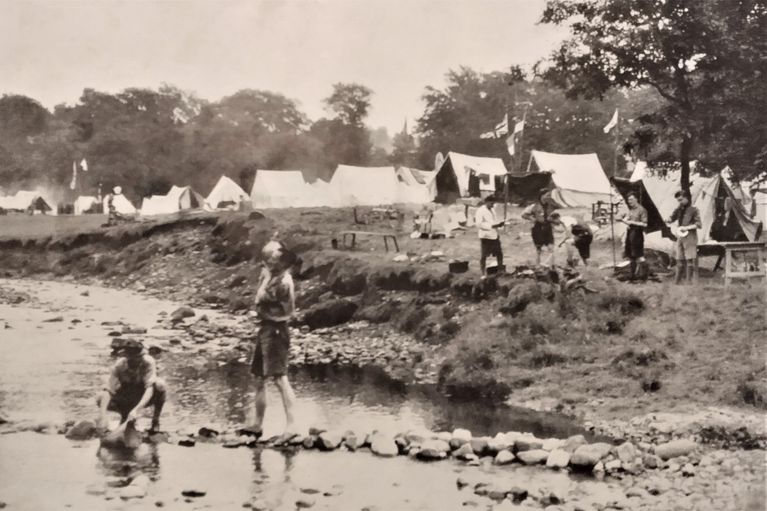
The Shaggie Burn
Behind them, the Shaggie bubbled gently. Wind soughed through the sycamore leaves. Sundry fires around the camp lent scant light and mostly the group were shrouded in darkness. The night was cooling. Bob’s bare forearms were beginning to goose-pimple and he rolled down his sleeves.
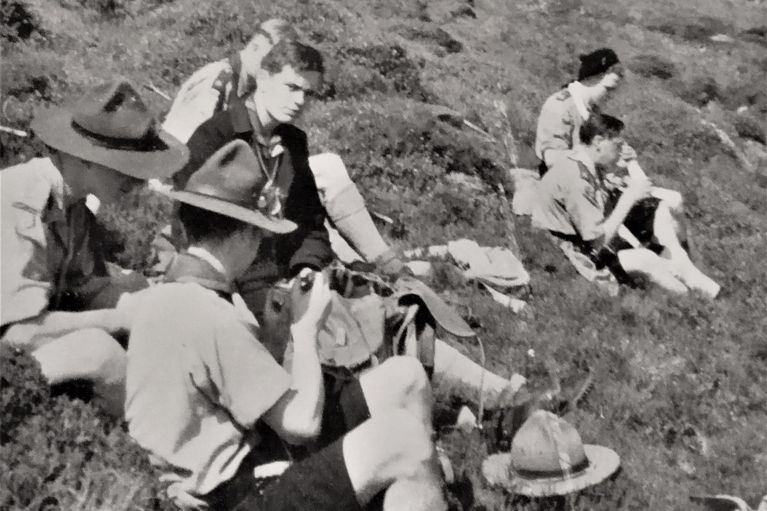
Day Trips
‘Most of our Rovers have gone out,’ he said. ‘Today is the first day of the tours around your beautiful country.’
‘Aye, a friend of mine is takin one of the groups.’ Sandy Disdain was leading a trip up Ben Lawers, about twenty miles distant, each day for the next week.
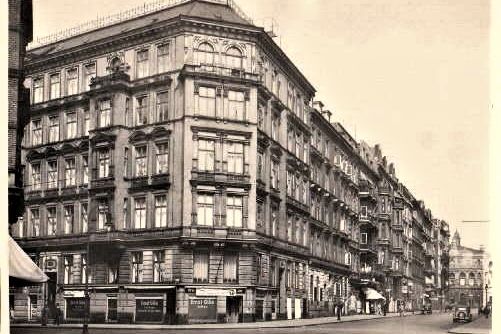
Sophienstrasse
Propped against an empty glass vase was a half postcard. The old man handed it to Miško, and Miško placed it beside his. They matched perfectly. The old man’s half said: “Sophienstraße”.
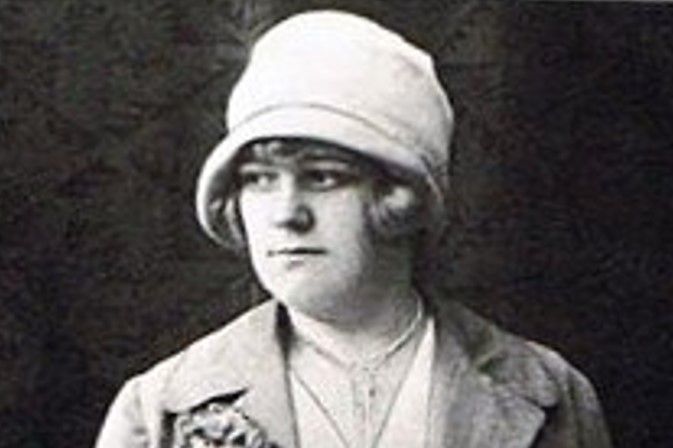
Jessie Jordan
Jessie Jordan, as well as being a spy, had run a post-restante operation from Perth and Dundee for the Abwehr until she was arrested the previous year and convicted that May.
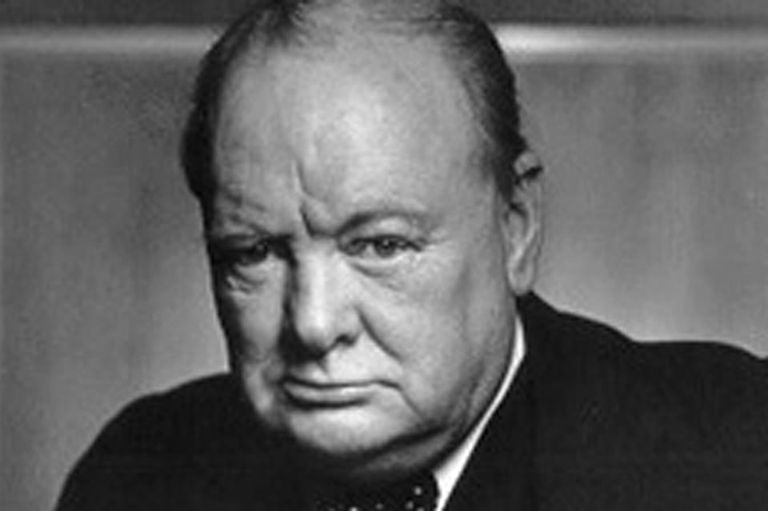
Winston Churchill
‘In wartime, truth is so precious that she should always be protected by a bodyguard of lies.’
Winston Churchill
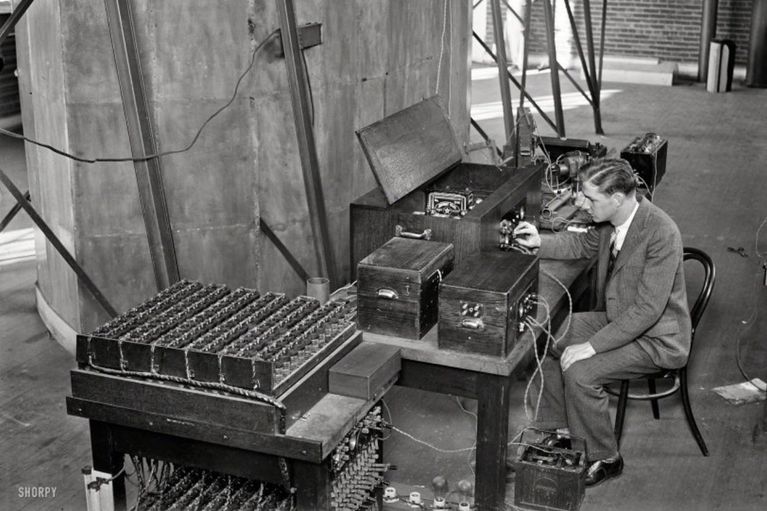
BBC outside broadcast
In front of them was a round microphone, bigger than a human face. Another man was turning a knob on what looked to Bob like a chest of drawers but with the drawers running vertically instead of horizontally. Behind him, yet another man was turning knobs on an instrument panel that was similar to Bob’s wireless at home, but much larger. However they did a live broadcast, Bob reflected, it took a lot of them.
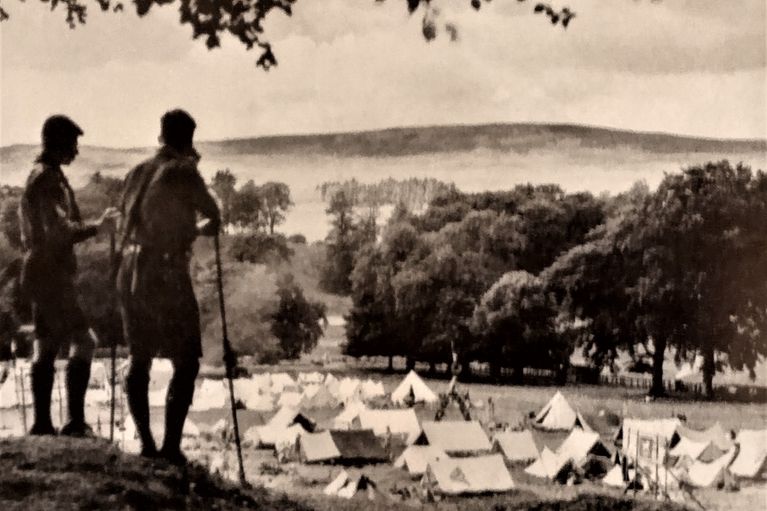
Last day
‘Today is our final day of the Rover Moot at Monzie Castle and I think you’ll all agree it has been a magnificent experience. I only wish all the nations of the world had been represented here.’
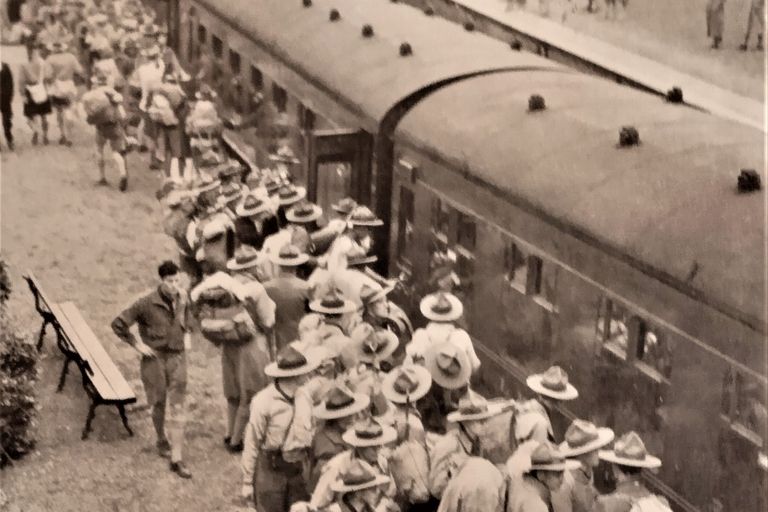
Leaving Crieff
Crieff Railway Station had never seen the like. The Up Platform was submerged beneath a pulsing mass of bodies, men in shorts and various styles of headgear, all carrying rucksacks, many bearing sundry souvenirs from the Moot, wooden markers pointing the way to the bank and post office and headquarters, signs from the encampments of the various countries or British regional groupings, flags, pennants, newspapers. A cacophony of languages commingled among the iron columns lining the platform and rose into the grey morning sky. The first of seven trains chartered to ferry the Rovers to Edinburgh stood on the platform.
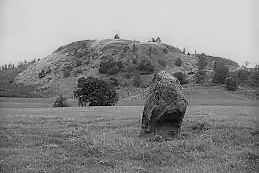
Kate McNiven
‘It’s probably just an auld wives’ tale. There’s a steep hill and they say they put Kate McNiven in a barrel of boiling tar and hurled her doon the slope. Then at the bottom they set fire to her, just to mak sure.’
‘Aye well, Crieff folk can get richt bad-tempered sometimes.’
© Copyright. All rights reserved.
We need your consent to load the translations
We use a third-party service to translate the website content that may collect data about your activity. Please review the details and accept the service to view the translations.
